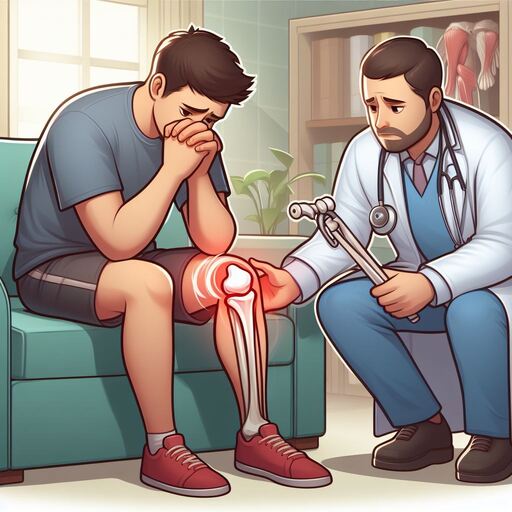The Psychological Impact of an ACL Tear How to Cope with the Emotional Challenges
The Psychological Impact of an ACL Tear How to Cope with the Emotional Challenges
An anterior cruciate ligament (ACL) tear can be a devastating injury for anyone who relies on their knees for physical activity or daily living. In addition to the physical challenges associated with recovery, an ACL tear can also have significant psychological impacts that can affect mental health and overall quality of life.
One of the most common emotional challenges associated with an ACL tear is frustration. Athletes may feel frustrated with their inability to participate in their sport or activities they once enjoyed. Non-athletes may feel frustrated with the limitations placed on daily activities such as walking, running, or even climbing stairs.
Another common emotional challenge is depression. The physical pain and limitation caused by an ACL tear can lead to feelings of isolation, loss, and hopelessness. Additionally, changes in lifestyle such as being unable to participate in favorite activities or hobbies can further exacerbate these emotions.
It’s important to remember that the psychological impact of an ACL tear is a normal part of the recovery process. However, there are several strategies that can help cope with the emotional challenges associated with recovery:
The Psychological Impact of an ACL Tear How to Cope with the Emotional Challenges
1. Seek support from friends, family, and healthcare providers: Surrounding yourself with supportive people who understand what you’re going through can make all the difference in your recovery journey. Consider joining a support group or reaching out to friends and family members for emotional support.
2. Find alternative activities: While physical limitations may be frustrating, finding alternative activities can help maintain a sense of normalcy and fulfillment. Consider trying new hobbies or activities that don’t require knee use, such as swimming, yoga, or painting.
3. Practice positive self-talk: It’s easy to get caught up in negative thoughts and feelings during the recovery process. Practicing positive self-talk can help shift your focus away from the limitations and towards the potential for growth and progress.
4. Focus on small milestones: ACL tear recovery is a gradual process that involves a series of small milestones. Celebrating these milestones, no matter how small, can provide a sense of accomplishment and motivate you to keep going.
5. Seek professional help: If you’re struggling with the emotional challenges associated with an ACL tear, consider seeking professional help from a therapist or counselor who specializes in sports medicine or injury recovery. They can provide guidance on coping strategies and help you develop a positive mindset during the recovery process.
In conclusion, while the psychological impact of an ACL tear can be significant, there are several strategies that can help cope with the emotional challenges associated with recovery. Seeking support from friends, family, and healthcare providers, finding alternative activities, practicing positive self-talk, focusing on small milestones, and seeking professional help when needed can all make a big difference in navigating the emotional aspects of ACL tear recovery.
The Psychological Impact of an ACL Tear How to Cope with the Emotional Challenges

